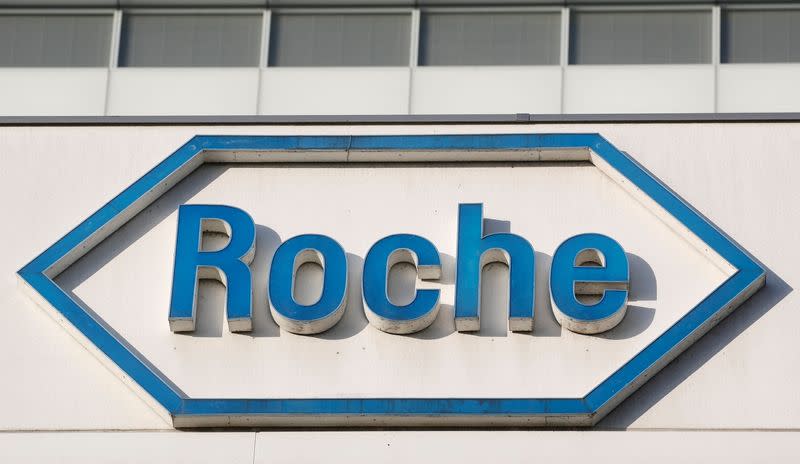Roche touts early trial success of second obesity drug candidate

By Paolo Laudani and Ludwig Burger
(Reuters) - Roche said on Wednesday a second drug candidate from its purchase of Carmot Therapeutics yielded positive results in an early-stage trial, as the Swiss drugmaker asserted itself as a late contender in the race to develop obesity drugs.
Roche's experimental once-daily pill CT-996 resulted in a placebo-adjusted average weight loss of 6.1% within four weeks in obese patients without diabetes in a Phase I trial, Roche said in a statement.
The stock jumped 6.7% at the open, a similar market reaction to positive trial results from another Carmot drug in May.
Roche is among a growing number of would-be rivals to Novo Nordisk and Eli Lilly, whose weight-loss drugs have been in feverish demand, with experts boosting their sales forecasts for such treatments to as much as $150 billion by the early 2030s.
Roche's experimental pill, which could appeal to patients averse to injections, was well tolerated, with mostly mild or moderate gastrointestinal side effects similar to those seen in other weight-loss drugs, according to the statement.
"We are pleased to see the clinically meaningful weight loss in people treated with our oral GLP-1 therapy CT-996, which could eventually help patients address both chronic weight management and glycemic control indications," Roche's chief medical officer Levi Garraway said.
Based on the results in the first of three phases of testing on humans, CT-996 will advance to the second stage, Roche said.
Another drug candidate known as CT-388 from Roche's Carmot takeover, a self-administered once-weekly injection like Novo and Lilly's leading products, succeeded in a Phase I trial in May.
Roche in December agreed to take over Carmot for $2.7 billion upfront, joining other companies seeking to challenge the dominant makers of weight-loss drugs Novo and Lilly.
(Reporting by Paolo Laudani, Editing by Rachel More, Sherry Jacob-Phillips and Bernadette Baum)






